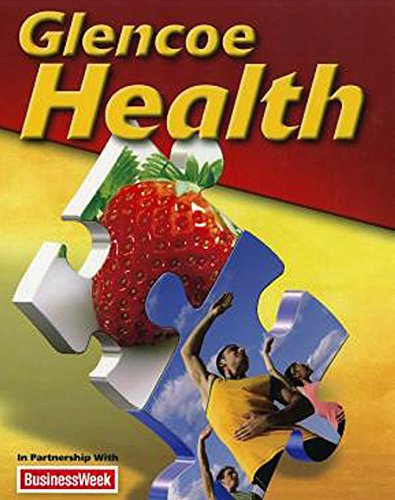
Glencoe Health
1st Edition
ISBN: 9780078913280
Textbook solutions
All Solutions
Section 18.1: Changes During Adolescence
Exercise 1
Step 1
1 of 2
Adolescence is a transitional stage, a period between puberty and legal adulthood when physical and psychological development occurs (between ages 13 and 19). Changes that take place in adolescence often start earlier between ages 9 and 12.
Puberty is a period in a girls or a boy’s life when they become sexually mature. That process usually happens between ages 10 and 14 for girls, while for boys between ages 12 and 16. In puberty, boys and girls change physically.
Result
2 of 2
Adolescence- transitional stage between childhood and adulthood
Puberty- period in a boys or a girls life when they become sexually mature
Exercise 2
Step 1
1 of 2
Reproductive cells are called gametes. Female gametes are called ova or egg cells while males gametes are called sperm.
Result
2 of 2
Female- ova/egg cell
Male- sperm
Exercise 3
Step 1
1 of 2
Those are some secondary sex characteristics in males during puberty, that doesn’t happen overnight, but in several months or years.
Result
2 of 2
Facial hair appears, body hair appears, all permanent teeth grow in, voice deepens, shoulders broaden, muscles develop, hairline begins to recede and perspiration increases.
Exercise 4
Step 1
1 of 2
Children’s brains grow and change fast and that affects their thinking and behaviour. Prefrontal lobe is the part of the cerebrum and the last part of the brain that needs to mature. That happens intensively during adolescence. Brain development depends on many things that affect it: genetics, individual factors (age, experience and hormonal changes during puberty) and environmental factors. The prefrontal lobe is credited with making decisions. Adolescents will develop the ability to plan, they will start to think about consequences of their actions, solve problems in more complex ways, think logically, control impulses and understand different points of view.
Result
2 of 2
During adolescence, part of the cerebrum called prefrontal lobe change and mature intensively. Because of that, adolescents will learn to solve problems in a more complex way, think about consequences, think logically, control impulses and understand different points of view.
Exercise 5
Step 1
1 of 2
Adolescence is the period of development between childhood and adulthood. It begins at puberty and ends at emerging adulthood. Adolescence typically occurs between ages of 12 and 18. It is the time of many challenges and changes.
Result
2 of 2
Between ages of 12 and 18.
Exercise 6
Step 1
1 of 2
Sometimes, peers are encouraging you to do something you know is wrong. Adolescents often feel pressure in those situations because they want to fit in and be accepted and they don’t want to feel awkward or uncomfortable in front of their friends. Responding to peer pressure is part of human nature and refusing them might feel uncomfortable or make you unpopular. But this is a great opportunity to figure out what is right for you and to develop maturity. I would listen to my gut and find a way to avoid it. I would make something up just to bail out from the situation. If they are true friends, I think I don’t have to give them an explanation for it. If they become angry at me, that will show me I didn’t make a good choice when I was choosing them. Friends should give moral support and stand out for each other. If their pressure is growing more and more, and the situation becomes dangerous, I would not hesitate to ask my parents for help.
Result
2 of 2
Listen to your gut and try to avoid it; make something up to bail out of the situation; don`t forget friends should stand out for each other; if you can`t find a way, ask your parents for advice
Exercise 7
Step 1
1 of 2
Dear friend! Please think twice before you do anything. I think that this activity is unsafe and unwise. If you do that you might have some problems. Think about that. What would you tell your parents? Would you feel happy about it? I don’t think so. This will not be a good example for anybody. Don’t let the pressure scare you. You could make something up to avoid it. If that goes wrong, I will stand for you, don`t worry. I’m sure that you will feel good if you avoid harmful consequences. Maybe those who are asking you to do that will learn something too. Maybe you will be an example for them. I think that this feeling is better than regretting, which you can’t avoid if you do that. I know you are strong and that you will find the courage to refuse it. Again, please think twice and reconsider my letter.
Result
2 of 2
Think about consequences; don`t let the peer pressure scare you; you could make something up just to avoid it; try to be a good example for others
unlock

